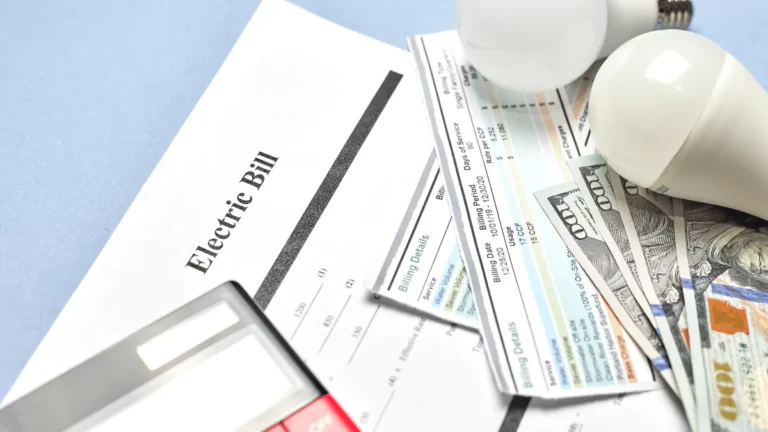The best way to save money on your monthly bills. And not just any plan, but one that fits your life and your goals. These simple steps can enable you to build a strategy that actually works for you, no matter your income or situation.
Getting started is usually the hardest part, but it doesn’t have to be overwhelming. This guide breaks things down into small, manageable steps so you can create a simple, realistic plan.
The goal? To help you save more, spend smarter, and feel more confident about your money every day.
How Do I Start Saving Money?
Start by tracking what you spend. Before you can save, you need to know where your money goes. Keep a record of everything—every coffee, every snack, every bill. Don’t leave out small stuff or cash purchases. You can write it down in a notebook, use a spreadsheet, or download a free app. Whatever feels easiest for you.
After tracking your spending, group things into categories like rent, groceries, gas, or entertainment. Add up how much you spend in each group. Your credit card and bank statements can enable you to double-check.
💡 Tip: If you’re a Bank of America customer, their Spending & Budgeting tool can organize your transactions automatically.
How Do I Fit Saving Into My Budget?
Think of saving like a regular bill. Once you know what you spend each month, it’s time to make a budget. A budget helps you plan your spending based on your income, so you don’t go overboard.
Add in costs that pop up now and then, like car repairs or yearly memberships. And don’t forget to add a savings section to your budget. Pick an amount that feels doable. Over time, try to grow that number to about 20% of your income—the core of the 50-30-20 budgeting rule..
How Do You Save Money On a Tight Budget?
Cut back on things you want but don’t need. If money feels tight, saving can seem out of reach. But even small changes can help. First, look at your spending and spot areas where you could spend less, especially on non-essentials like streaming, eating out, or shopping.
Here are a few ideas that might help:
- Look for free things to do
Check out local event calendars. You might find fun, no-cost activities nearby. - Review subscriptions
Cancel any memberships or services you don’t use often, especially ones that auto-renew. - Cook at home
Eating at home most of the time is usually cheaper than eating out. For those nights you want a break, look for deals at local spots. - Wait before you buy
If something catches your eye, give it a few days. You might realize you don’t need it, or come up with a better plan to save for it—perhaps by using that cash to diversify your investment portfolio.
What Kinds Of Savings Goals Should I Set?
Give your savings a purpose. Having clear goals can make saving feel more worthwhile. Think about what you want to save for in the near future (the next year or two) and further down the line (three years or more). Then figure out how much you’ll need and how long it might take to save that amount.
Some common short-term goals:
- Emergency fund (enough to cover 3 to 9 months of bills)
- Vacation
- Down payment for a car
Some long-term goals:
- Down payment on a house
- Home improvements
- Your child’s education
- Retirement
Try using an “if this happens, then I’ll do that” plan. It helps you think ahead and figure out how you’ll stick to your goals even if something changes.
Pick a small, fun goal—like saving for a new phone or holiday gifts. Meeting that goal gives you a win and makes saving feel worth it.
How do I decide which savings goals are most important?
Sort out your priorities. Once you’ve tracked your spending and figured out your goals, the next step is deciding which ones matter most. For example, should you focus on paying off debt, saving, or putting money into investments?
It can help you think about what you’ll need soon. Say your car is getting old—you might want to start saving for a new one. At the same time, don’t push long-term goals like retirement to the back burner. Finding a perfect balance between short- and long-term goals can help you feel more prepared.
How Do I Grow The Money I’m Saving?
Pick the right place to keep your savings. Where you keep your money matters; some accounts are better for short-term needs, while others are better for long-term plans. You can use a mix, depending on what works best for you.
For short-term goals:
If you’ll need the money soon or want quick access to it, try these:
- A regular savings account
- A certificate of deposit (CD), where your money stays locked in for a set time and usually earns more interest than a basic savings account
For long-term goals:
If you’re thinking about retirement or saving for your child’s education, these might be better:
- Individual Retirement Accounts (IRAs) or 529 plans can be a practical plan that offers tax advantages
- Investment accounts, like stocks or mutual funds (these come with some risk but might earn more over time)
How Can Benefits At Work Help Me Save?
Take advantage of what your job offers. Many jobs come with built-in ways to help you save. One of the most common is a 401(k) plan. You can have money taken out of your paycheck automatically and put into a retirement account, before taxes. Some companies even match part of what you contribute, which means free money toward your future.
Other work perks may include:
- Health Savings Accounts (HSAs) help cover medical expenses.
- Flexible Spending Accounts (FSAs) are ideal for child care or medical costs, using pre-tax dollars.
These tools can lower your taxes and help you set money aside for big expenses.
Are There Easy Ways to Save Money?
Yes—and you can even automate it. Most banks let you set up automatic transfers from your checking account to your savings. You choose the amount and the schedule, and it happens without you having to do anything. Or you can split your paycheck, so part of it goes straight into savings every time you’re paid.
Here are a few more effortless ways to save:
- Round-up programs
Some banks and apps round your purchases (including expenses and luxuries) up to the nearest dollar and move the spare change into savings.
- Credit card rewards
Use rewards from your credit card for cashback or savings, as long as you’re paying the card off each month.
The less you have to think about saving, the easier it becomes to stick with it.
OK, I Have a Plan To Save Money. Now What?
Keep checking in. Go over your budget and check your savings progress once a month. It’ll help you stay on track and spot any issues early. Once you start seeing progress, you might even feel motivated to find more ways to save.
Saving money doesn’t have to feel like a chore. When you set simple goals, track your progress, and make saving automatic, you’ll start to see real results—and feel more confident about the future.
Emily Roberts is a chartered accountant and financial advisor who specializes in income tax and small business compliance. She writes to simplify complex tax concepts for everyday readers.

